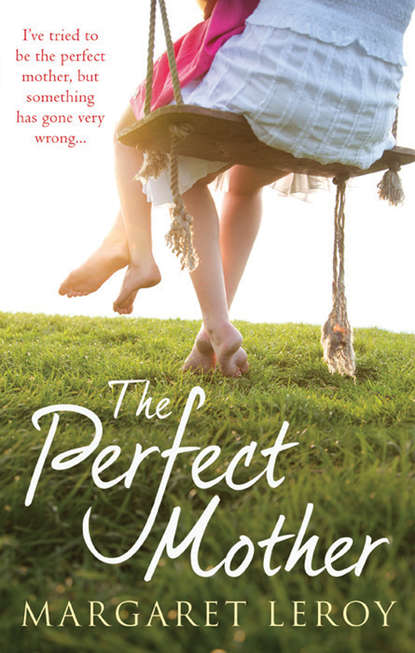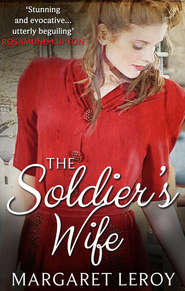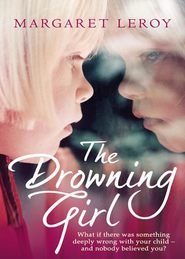По всем вопросам обращайтесь на: info@litportal.ru
(©) 2003-2024.
✖
The Perfect Mother
Автор
Год написания книги
2018
Настройки чтения
Размер шрифта
Высота строк
Поля
CHAPTER 5
There’s a postcard for me. At first, I don’t see it: it’s hidden under a letter from Richard’s parents, thanking Sinead and Daisy for their thank-you letters. I’m smiling to myself, at these flower-chains of gratitude and obligation that could go on for ever, when my eye falls on the postcard. I pick it up with care, as though it could hurt me. I’m glad that Richard has gone to work already. He doesn’t need to know.
There are four pictures. I look at them for a moment, not wanting to turn the card over. They’re conventional, touristy scenes. I read the captions. The Reichstag. Charlottenburg Castle. Kurfürstendamm. Unter den Linden. These places sound familiar, though I don’t know how to pronounce them. Charlottenburg Castle is white and opulent under a vast summer sky; Kurfürstendamm and Unter den Linden are shown by night, with lots of neon. The caption says, ‘I love Berlin.’ The dot of the ‘i’ in Berlin is a little red heart.
My heart pounds. I turn the card over. I can see the thought that went into this, how it was undoubtedly all planned, composed on a piece of rough paper, then copied out so carefully in this neat, rather childish handwriting.
Darling, I do wish you’d write. It’s been so very very long. And I hear you’ve got a lovely little girl of your own, now. It’s honestly no exaggeration to say that I would adore to see her.
And then the address, as before.
Darling. Like a lover. Like somebody who loves.
I have a brief moment of hope, a hope as glittery and enticing as a shard of coloured glass: you could cut yourself on it. Then rage that this comes now—rage at this wretched timing, when Daisy is ill, when I’m so full of this desperate anxiety. I hide the card at the bottom of the bin.
CHAPTER 6
Daisy is a little better. She dresses, eats some toast. When she cleans her teeth, she sounds as though she’s going to be sick, but we take some deep breaths together and the worst of the feeling passes. She doesn’t cry on the way to school, though she’s limping and she says her legs are hurting.
My confidence of last night is still with me: I’m sure I can solve this. I do all the things on my list. I ring the GP and make an appointment for this afternoon after school. I spend the morning cleaning Daisy’s room, moving all her cuddly animals out, as you’re meant to do if your child has asthma, and taking away her rug in case it’s been treated with pesticides, and steam-cleaning the mattress to immolate the dustmites. A sense of virtue opens out in me; I know her room is safe and pure and clean.
At lunchtime I ring Nicky.
‘I’ve got just the guy for you,’ she says, when I tell her about Daisy. ‘Helmut Wolf. He’s a kinaesiologist—you have to hold these little glass bottles and he tests your muscle strength to see if you’re allergic. It’s weird but it works. He was wonderful with my migraines. Trust me, he can help Daisy.’
I write his number down.
‘Neil thinks he’s nuts, of course,’ she says.
Somehow this makes me less sure about Helmut Wolf, though that’s certainly not her intention.
We talk about her boys. Max is doing brilliantly with his reading; his teacher is starting to hint he may be gifted. And Callum came downstairs last night wearing nothing but Nicky’s silver sandals and announced he was Postman Pat. Nicky herself is feeling rather smug: she’s given up smoking again and is on a detox diet. She says I wouldn’t believe the things she can do with a chickpea.
‘And how are—things generally?’ I say then, using one of those carefully vague phrases we use to hint at that separate, secret part of her—which for now means Simon at Praxis, and the illicit e-mails.
‘Fantastic.’ Her voice is lowered, with a whisper of risk. ‘But, look, I can’t talk now.’
We fix a date for a drink at the Café Rouge.
At three-thirty, I park down the road from the school gate. I open the car door and the rain comes down. I don’t have my umbrella. At first I fight against it, turning up my collar, but soon I’m soaked, so I lift up my face and let it fall on me, and it feels surprisingly pleasant, drenching me through. The whole street is musical with water, and outside the church on the corner the daffodils that are just opening around the war memorial are beaten down and ragged from the storm. The church noticeboard is advertising some course they’re running till Easter, enticing you in with the promise that you will discover life’s meaning. The wet air smells seductively of spring.
I join the group of parents at the gate, their open umbrellas like a flock of bright-winged birds alighting. Toddlers in buggies fight against the transparent rainshields spread across them, angry fists distending the plastic, wailing with red open mouths. Daisy was always like that: she’d fight and fight, she couldn’t bear to be shut in. Well, I can understand.
The bell rings, the caretaker opens the gate. Inside, the paving stones are slick with wet.
People around me are talking about their children.
‘Yeah, well, we’ve had them a few times, girls have this long hair and they put their heads together and whisper…My mother used to put malt vinegar on my hair…’
‘Ellie was off with a sore throat, and it was really expensive because I had to buy Liam some Lego to bribe him to go into school. It was five pounds, I ask you…’
One of the teachers is leaving already—Mrs Nicholls, who sometimes takes Daisy for music. She sees me there, half smiles in my direction, comes towards me.
‘Mrs Lydgate. I’ve heard about your troubles with Daisy.’ Her face is close to mine, she’s speaking in an undertone, as though this is something of which I may be ashamed. ‘I did want to say—I really do feel you’re doing the right thing in making her come in.’
‘I don’t know,’ I say.
‘It’s awful if your child’s unhappy at school,’ she says. ‘I had a lot of trouble with my daughter once—she wouldn’t go to school. We found it was friendship problems.’
‘I really don’t think it’s that,’ I say. ‘Daisy’s had flu, it’s like she can’t get over it.’
‘I used to send my daughter in with a nice snack for break time. One of those muesli bars, or a packet of raisins. She seemed to find it a comfort. Perhaps you could try that with Daisy.’
‘It’s a good idea,’ I say politely. ‘It’s just such a problem finding anything that she’ll eat.’
‘Well, keep up the good work,’ she says, and weaves her way out through the mass of parents. I feel uneasy, as though I have been reprimanded, although I’m sure she was only trying to be helpful. The rain collects in my parting and splashes down my face like falling tears.
In front of me the women shift and move. I see Fergal, just ahead of me, the unruly fair hair at the back of his head, the dark wet gleam of his jacket. He has a large umbrella that says Assisted Evolution.
I edge forward. He turns and sees me, eyes widening with recognition. I admit to myself that this is what I meant to happen. He makes a slight beckoning gesture with his head. With a huge sense of inchoate relief I move in under his umbrella.
‘Catriona.’ He smiles. I feel that something in me amuses him.
We have to stand close to stay out of the wet. He’s chewing gum: I can smell his wet hair and skin. I’m suddenly aware of how pink my face must be, of my hair all plastered down, that I’m wearing my oldest coat and the cuffs are fraying.
‘I don’t often see you here,’ he says.
Maybe, I think, he has been looking for me. I remember that fantasy I had, of moving my hands across his face and his head. My skin is suddenly hot.
‘I’m not here very often,’ I tell him. ‘Daisy’s ill.’
‘What’s wrong?’
‘I don’t know. Nobody seems to know.’
He’s listening, waiting.
‘Richard tells me not to worry—he thinks it’s just flu—you know, some kind of virus.’
He looks me up and down, taking me in.
‘It makes it harder really,’ I tell him. ‘I know this must sound stupid—but the more he says I mustn’t worry, the worse I seem to feel.’
‘Poor kid,’ he says. ‘Poor you.’
He puts his hand on my arm, leaves it there perhaps a second too long. A hunger opens out in me. I would like to peel back my wet sleeve and feel his hand warm on my skin.
We stand there for a moment, watching the children, while the rain beats down like a drumming of many fingers.









